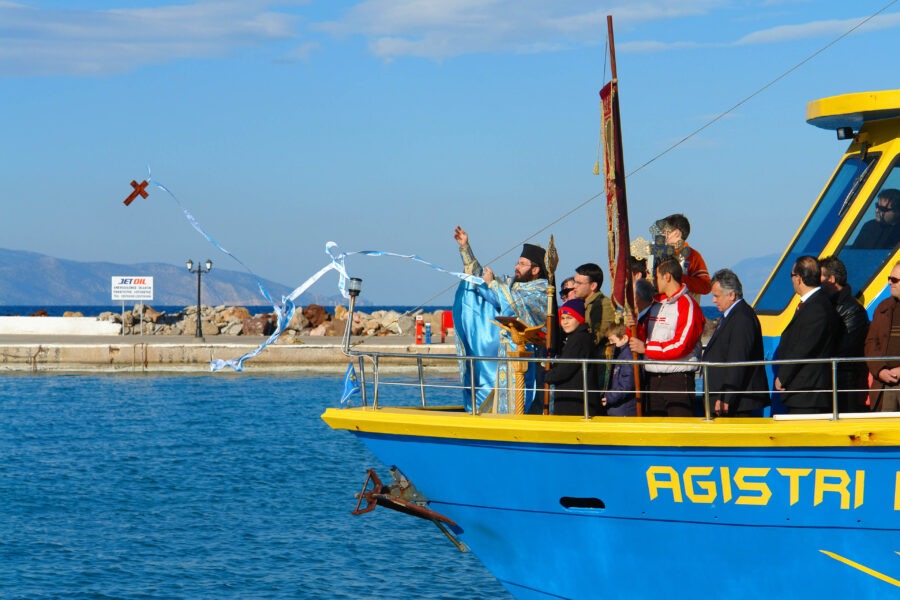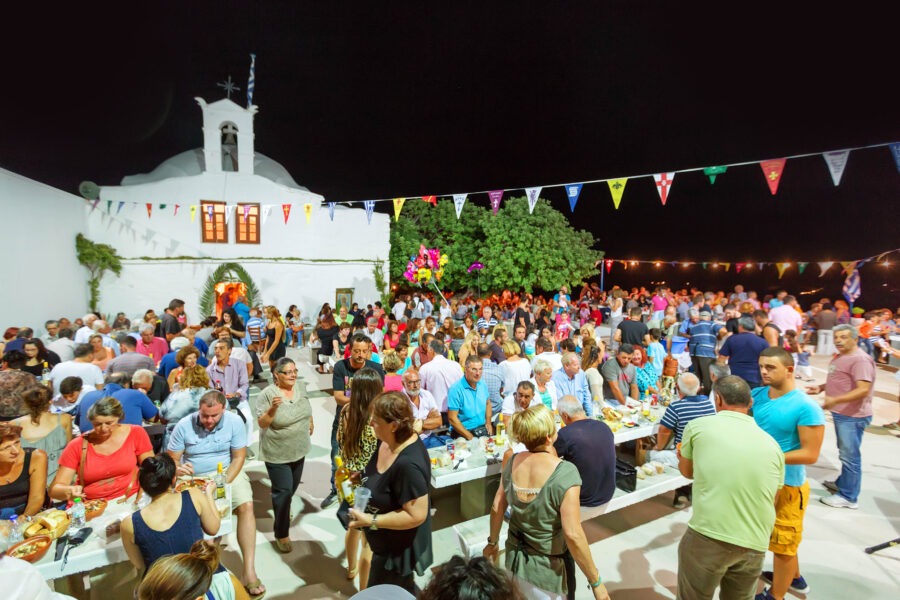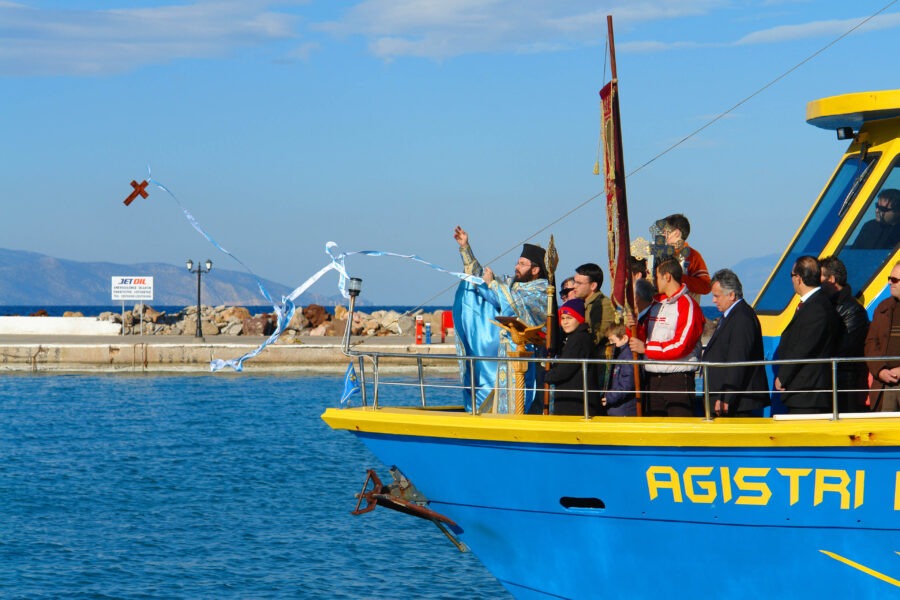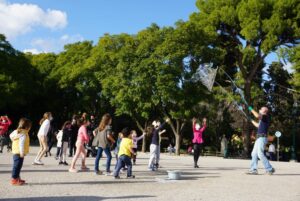Greece is beautiful no matter the season you visit it, that is for sure!
Athens and Thessaloniki, the country’s largest cities, are year-round destinations since, due to their large permanent population, they have numerous shops, hotels, and places of interest that welcome thousands of people throughout the year. The Greek islands, on the other hand, get very busy during the summer season, allowing the cities to rest for a bit. There, the atmosphere becomes tranquil again after the departure of the last tourists, usually around October.
Nonetheless, on a few set dates, the circumstances change. We are referring to the Greek national holidays. It is not rare for tourists to plan their visit to Greece and, not knowing that one day of their holiday itinerary coincides with a public holiday, were in for a surprise as they could not follow their schedule as planned!
This guide aims to help you avoid unpleasant surprises and, at the same time, take advantage of the perks that may come along with the national holidays!
Below, we will mention which dates are rest holidays for the Greeks and how things differ on those days compared to all others.
Dates of National Holidays
In brief, 9 out of the 365 days of the year are obligatory rest days for Greek people. These are:
• January 1 – First Day of the Year
• January 6 – Epiphany
• March 25 – Anniversary of the Greek Revolution
• Easter Sunday – Resurrection of Jesus Christ
• May 1 – Labour Day
• August 15 – Feast of the Assumption of the Virgin Mary
• October 28 – Ohi Day
• December 25 – Christmas Day
• December 26 – The day following Christmas (the equivalent of Boxing Day)

Epiphany in Agistri
In addition, there are customary holidays, meaning holidays that have been established by many companies as rest days for employees but which are not compulsory. These are Clean Monday, Good Friday, and Holy Spirit Day. All three days, like Easter Sunday, change according to the year.
Finally, November 17 is a holiday for all educational institutions as it is the day of the Commemoration of the Athens Polytechnic Uprising against the junta.
Visiting Greece During a National Holiday
One thing is for sure – on all holidays you will encounter more people outside compared to other days! That is because Greeks take advantage of time off work and spend the day with their loved ones. Cafes and restaurants get filled with families and groups of friends, and so are outdoor spaces (parks and hills, cultural centers, etc.) if the weather is not rainy.
Also, note that means of public transport conduct itineraries, but with more infrequent schedules.
Tip: The wisest thing to do if you plan to go out for lunch, dinner, or drinks on any holiday is to make a reservation at the restaurant or bar of your choice at least two weeks in advance.
On March 25 and October 28, the two days celebrating the nation’s struggles for freedom, parades take place. Students and teachers participate in these parades, while in the two largest cities – Athens and Thessaloniki, one can also see the military parade.
As the parade takes place on the main streets of each region, public transport serving the respective areas is limited until the events are over.
On May 1 and November 17, you are most likely to see marches with thousands of people if you are in a city.
Unfortunately, what starts as a peaceful march often ends up in conflicts between protestors and policemen. As the situation may get out of hand, it is recommended that you stay away from the gathering places, which are usually the most central part of the city (Syntagma Square in Athens, Aristotelous Square in Thessaloniki, Vassileos Georgiou Square in Patra, etc.)
Religious holidays are the ones with the most cheerful atmosphere. Since people in villages are fewer and maintain a more traditional way of life, the experience of celebrating a religious holiday – especially Easter or the Assumption of the Virgin Mary – in a Greek village is a unique experience that will be etched in your memory forever!
– Easter Sunday starts at midnight when people go to church with candles to get the holy light from the priest and form a cross on the house’s doorstep with its smoke. The women have cooked magiritsa, the traditional food of the Resurrection, as well as tsoureki and Easter cookies. After waking up in the morning, families and friends gather to roast ovelias (lamb), dance, and crack eggs that have been dyed red.
– On August 15, the atmosphere is equally festive. In the churches dedicated to the Virgin Mary (almost every place across Greece has at least one), the infamous panigiria are organized, with the locals having cooked delicacies, gathering drinks, and singing and dancing late into the night to celebrate the Assumption of the Virgin Mary.

Panigiri in Ios
During the Christmas holiday (which includes Christmas, New Year’s Day and Epiphany, approximately December 22 – January 7), the Easter holiday (Holy Week), and August, schools are closed, and many people schedule their leave at that time, in order to visit their home village or go on vacation. Therefore, if you stay in a city on those dates, you will experience it less crowded than it usually is.
Pros of Visiting Greece During a National Holiday
If you find yourself in Greece on Ohi Day (October 28) and have museums on your to-do list, you are in luck!
According to the Ministry of Culture and Sports, all museums, monuments and archaeological sites owned by the State are admission-free on that day.
Except for the Ohi Day, free admission to museums, monuments, and archaeological sites is in force on the following dates:
• March 6 – Melina Mercouri Memorial Day
• April 18 – International Monuments Day
• May 18 – International Museum Day
• Last weekend of September – European Heritage Days
• The first Sunday of each month from November 1 to March 31

The Archaeological Museum of Mycenae
Note 1: The Acropolis Museum has different official free entrance days.
More specifically, its official free entrance days are March 6, March 25, May 18, and October 28.
Note 2: You can only enter for free the historical and cultural points of interest that belong to the Greek State on the aforementioned dates.
Several renowned museums, such as the Benaki Museum and the Goulandris Museum, are private and do not follow this law.
Moreover, the parades on March 25 and October 28 are awe-inspiring. You will have the opportunity to admire students holding Greek flags and playing musical instruments or units of military and civilian departments parading in their uniforms.
The military parade takes place in Athens on March 25 and in Thessaloniki on October 28.
The post National Holidays of Greece – Everything You Should Know appeared first on GREECE TRAVEL BLOG BY GREEKA.




